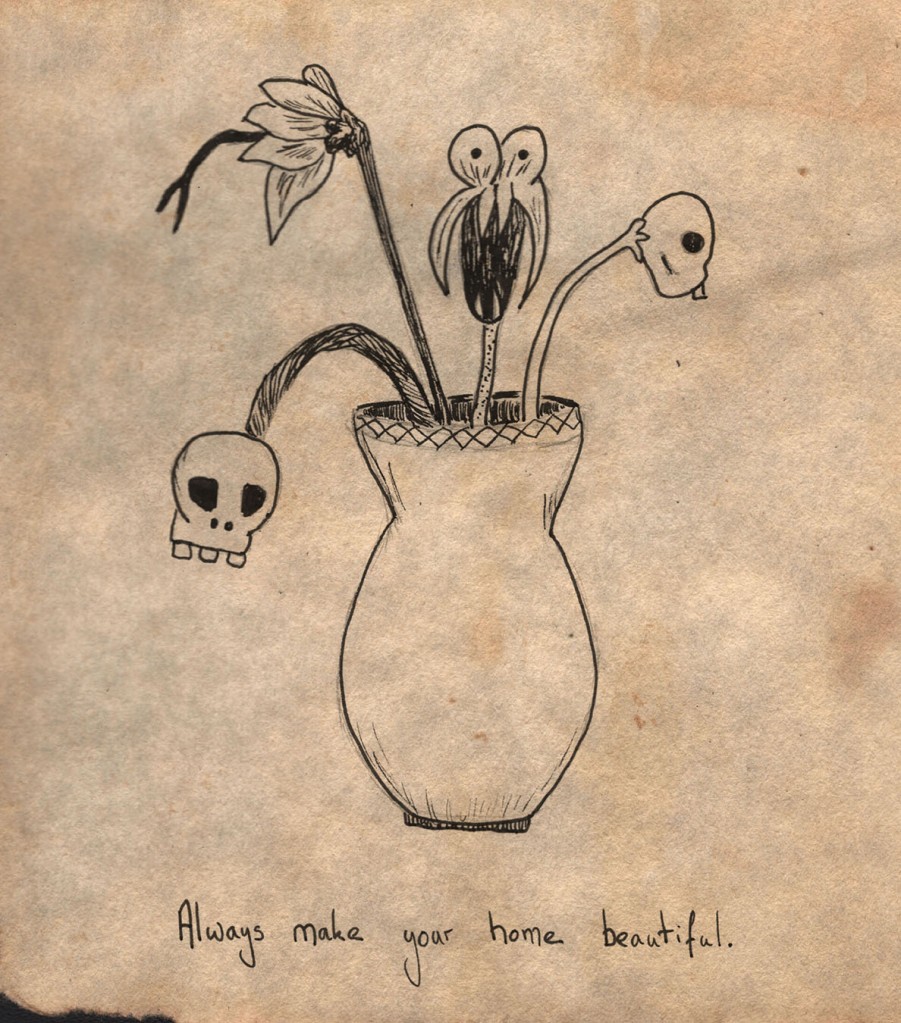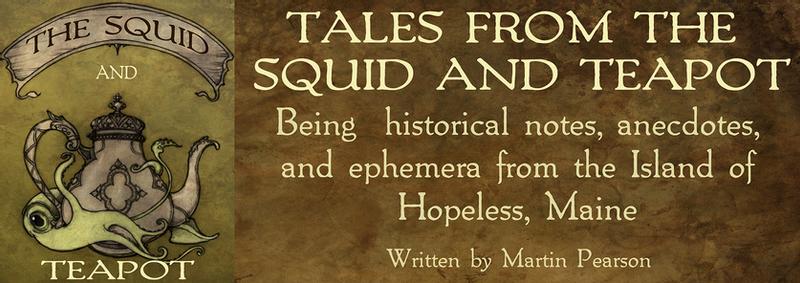By Martin Pearson

Reggie Upton pulled the collar of his Crombie overcoat up and shivered, watching his breath condense in the chill air of a Hopeless afternoon.
“Dashed parky for Midsummer, what?” he said to a somewhat bemused Seth Washwell, who, until now had been under the distinct impression that he and his eccentric English companion conversed in a something resembling a common language.
Despite there being no handy translation available, from the tone of Reggie’s voice, it seemed reasonably clear that a positive response was expected of him.
Hoping for the best, Seth nodded sagely.
“I used to think that British summers were a trifle poor, on the whole, but this weather is positively wintry,” complained Reggie.
Enlightened by this last remark, Seth felt fairly certain that he would be on safe ground by venturing a reply.
“I’ve never known it quite this bad in the middle of the year,” he admitted. “Even St. John’s warts have shrivelled up.”
Reggie looked about him, confused.
“St. John’s wort? I can’t say that I have seen any in bloom.”
He scanned the area in vain for the familiar, heart-warming yellow blaze of the midsummer flowers that had annually graced his Cotswold garden.
“Not St. John’s wort; St. John’s warts. They’re very common on the island,” said Seth irritably, pointing to a bedraggled plant that sported a small and withered cluster of scrotally unattractive nodules.
“The warts are usually puffed up and perky on Midsummer’s Day,” he said, adding, “but it’s too darned cold this year.”
It was, indeed, unseasonably chilly, even for Hopeless, Maine.
The wraith of Granny Bucket hovered in the kitchen of The Squid and Teapot. Today she had decided to be visible only to her granddaughter, Philomena, who was busily making a batch of starry-grabby pies.
“it won’t be long now. Can’t you feel it, Philomena?” she said.
“I feel I’ve got a lot of work to do, and worrying about the Psychopomp isn’t going to help,” Philomena replied. “We have done all that we can for Father Stamage. It’s up to Drury now.”
Father Ignatius Stamage, the recently deceased Jesuit who now haunted The Squid and Teapot, had been warned of the impending arrival of the Psychopomp, a supernatural entity, sent to drag him to Purgatory. More than reluctant to go, Stamage had hidden in his hat, vowing to stay there until the following day. It was last seen being taken to the Underland by Drury, the skeletal hound (as related in the tale ‘Midsummer’s Eve’).
“The temperature has dropped already, that’s a sure sign,” said Granny, “but you mark my words, it’ll get colder.”
Granny paused for dramatic effect, then added, ominously,
“A hell of a lot colder.”
The passage from the Gydynaps, which led steeply down into the Underland, was tight, even for Drury.
The old dog’s skeletal form barely scraped through some of the narrower parts of the tunnels, and more than once he had to give himself a shake, in order to persuade a displaced rib to return to its usual position. It was not until he had reached the main pathway, far beneath the island’s surface, that the going became easier. To Drury’s great credit, not once did he let the priest’s hat fall from his mouth.
If I said that I knew anything of the workings of Drury’s mind, I would be lying. Often his actions are so typically canine that, if it was not for the fact that he appears to be no more than a collection of bones, it would be easy to regard him as being a fairly run-of-the mill, bog-standard dog. The fact that he is literally brainless, and has nothing in his skull other than the occasional fly, might lead the unwary to believe him to be dim, but this is definitely not so. Whatever force it is that animates Drury, it seems to have endowed him with greatly heightened dog senses and a depth of understanding beyond our knowing. Or, there again, he might just be lucky in his choices. Whatever the reason, it is sufficient to say that he reached the Crystal Cave without mishap.
As regular readers will recall, the Crystal Cave acts as a portal to a variety of random locations. Those who visit, however, have no control over what they find when they get there, not even Drury. His mission had been to get Father Stamage safely away from the Psychopomp, thereby avoiding condemning the priest to purgatory. Where better than the Crystal Cave? In this Drury had succeeded beyond all hopes. It was just unfortunate that the Crystal Cave was in a playful mood on that particular day, for when the dog bounded into its depths, the priest’s hat firmly clamped in his powerful jaws, he was greeted by a cheerless, grey landscape, peopled by the shadowy figures of equally cheerless and wailing grey wraiths. Unperturbed, the osseous hound wandered up the rough, cobbled street and raised a defiant, but ineffective, leg against the base of a rotting wooden boundary sign. It was weather-bleached, with flaking paint and faded lettering, declaring to any desolate soul unfortunate enough cross its path: “PURGATORY WELCOMES CARELESS SINNERS”.
It was too foggy for any to see the pallid, midsummer sun as it slipped silently into the turbulent ocean. Similarly, Gula, the dog-headed deity who drifted into the flushing privy of The Squid and Teapot, was completely invisible to human eyes.
“I haven’t seen you before,” said Lady Margaret D’Avening, resting her head on the washstand. “Are you new?”
The cynocephalous goddess regarded the ghostly White Lady with some curiosity, not sure whether to address the head or the body, which stood a few feet distant.
“I am not that new,” she said. “I was first worshipped in Sumeria over seven thousand years ago, so that makes me considerably senior, by several millennia, to all of those young upstarts who call themselves gods.”
“That is impressive,” said Lady Margaret with a ghastly smile, “but it has not stopped you from being landed with this job. You dog-headed deities seem to get lumbered with it every time.”
“We like the exercise,” said Gula, pleasantly. “Now, where is Father Stamage?”
“Far away and somewhere safe. You won’t find him,” said the White Lady.
Gula smiled a doggy smile. “We’ll see,” she said.
The ancient goddess drifted through the privy wall and out into the crowded bar, where only the shade of Granny Bucket noticed her passing.
“It might warm up a bit now,” she muttered to herself.
Father Stamage’s hat – the Capello Romano – lay on the floor of the cave, guarded by Drury, while the anguished wraiths of Purgatory milled around, keen to see who the new arrival might be.
Just when Drury was wondering if it was safe to return home, the awe-inspiring figure of Gula manifested before him. The wraiths immediately receded into the shadows, and Drury bowed his head, crouching down in reverence. Had any of the Hopeless islanders witnessed this, they would have rubbed their eyes and imagined that they were dreaming. Drury was famously subservient to none, and never had been, but here he was, bowing.
Gula knelt before Drury and held him to her. Despite himself, the bony old dog looked up in wonder.
“Most valiant hound. You have braved all of this for your friends,” she said. “You should be rewarded.”
Gula was famous in her time for her attachment to dogs; indeed, they were sacred to her. That is probably why she chose to be seen as dog-headed, occasionally.
Whatever passed next between the dog and the goddess, I do not know, but after a while she sighed, and rose to her feet.
“Very well,” she said kindly, “walk with me now… and yes, you can bring the priest. You obviously think a lot of him. I’ll release him of his obligation, on condition that you make sure that he does not have a totally comfortable time over the next hundred years.”
“I can do that,” thought Drury, happily.
The two walked through the mists of Purgatory together, until, to Drury’s surprise, he found himself in Creepy Hollow, the Capello Romano still clamped between his teeth. Night had fallen and a full moon was riding high in the sky.
“One day, people will realise that Purgatory is closer than they know. It is only ever just around the next corner,” said Gula.
She turned to leave, then paused.
“When the day comes that you are weary of this island, come and find me,” she said.
Indistinct as the mist that surrounded her, Gula disappeared into the darkness.
Drury wagged his tail, gave a joyful bark and cantered off towards the welcoming lights of The Squid and Teapot.








